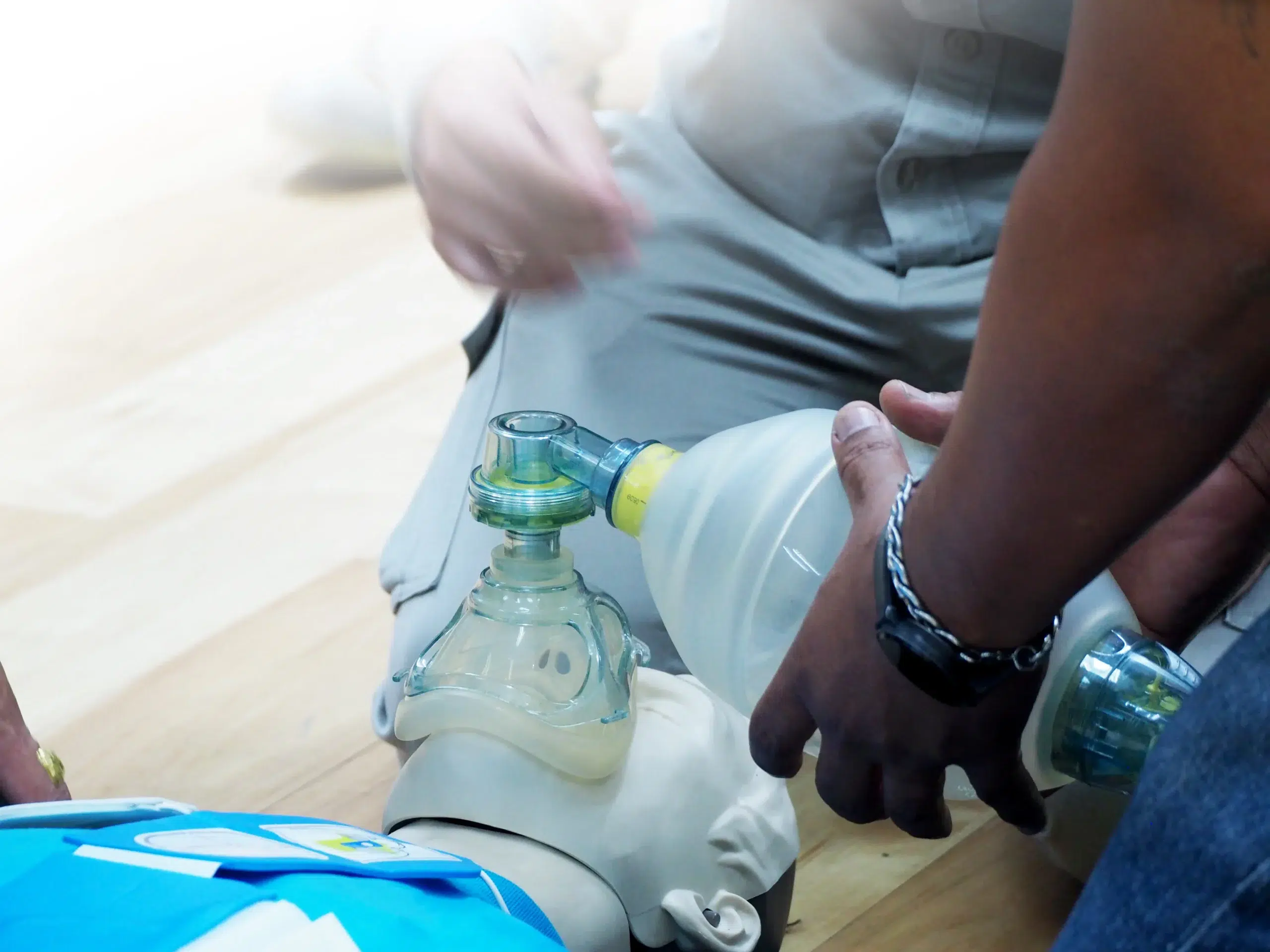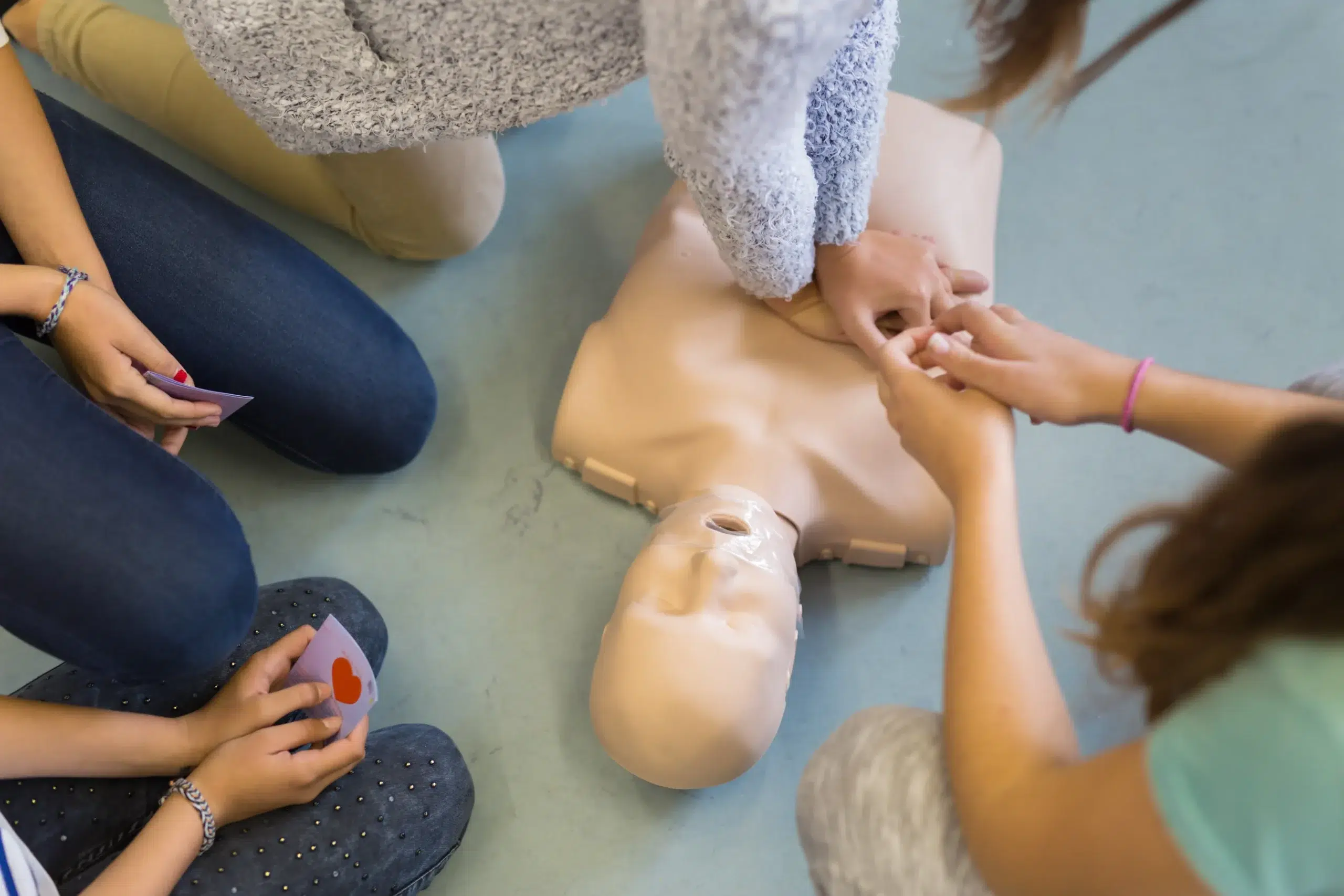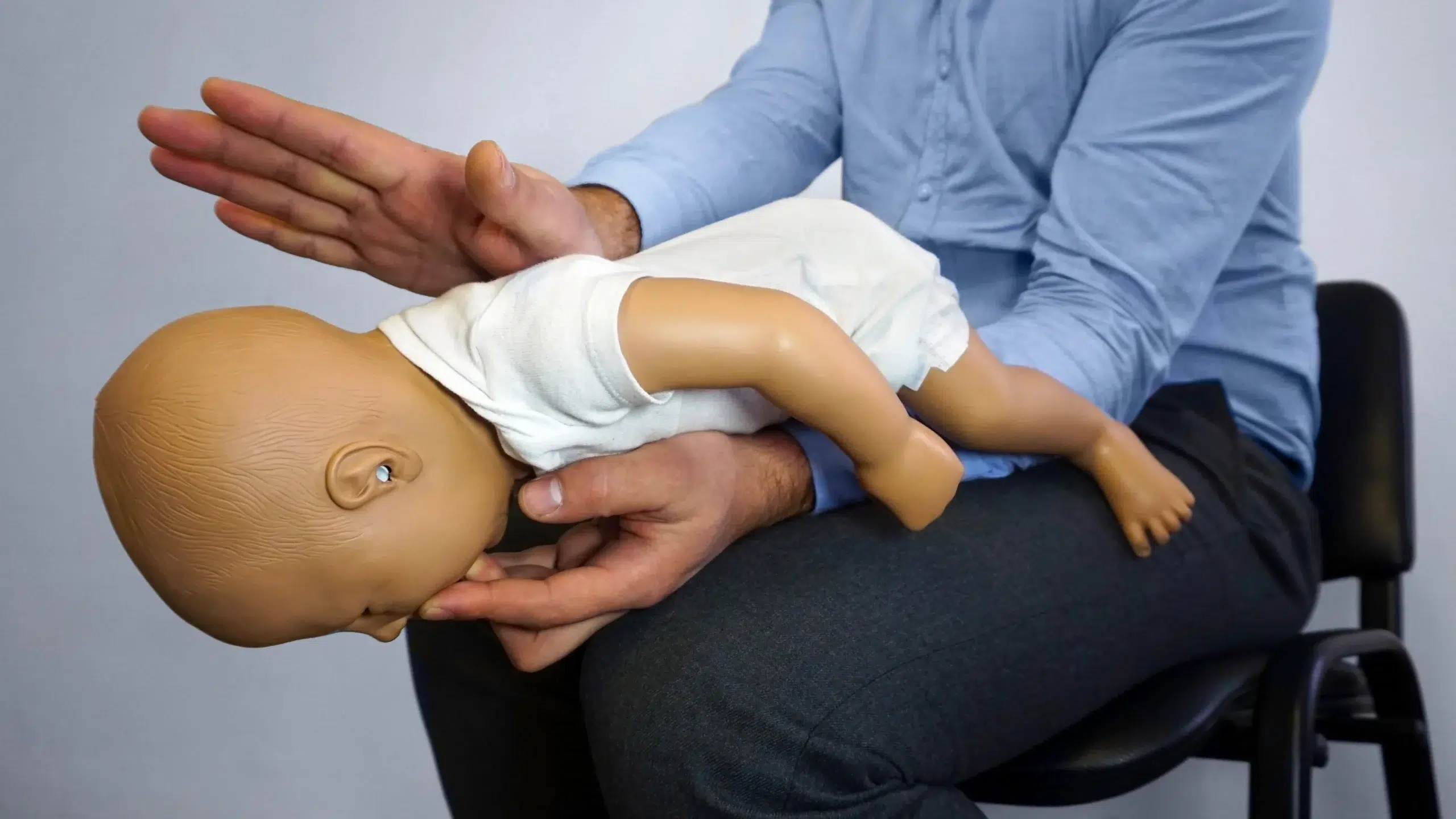Life is unpredictable, and knowing how to perform CPR can empower you to handle emergencies effectively. But how long does CPR cert last before you need a refresher? This guide provides a clear and concise answer to that question, along with practical information on CPR certification renewal, leading providers, and tips for maintaining your skills. We’ll explore the standard two-year certification period, discuss variations among providers, and delve into the factors that can influence the duration of your certification. Whether you’re seeking initial certification or looking to renew your existing credentials, this guide will provide the essential information and resources you need to stay prepared.
Key Takeaways
- CPR certification is a powerful tool: Equipping yourself with these life-saving skills can dramatically improve someone’s chances of survival during a cardiac emergency. Regularly renewing your certification ensures you’re always prepared to act quickly and effectively.
- Staying current with your CPR certification is essential: Most certifications are valid for two years. Plan your renewal in advance to avoid any lapse in your qualifications and maintain your confidence in providing aid.
- CPR training fits your schedule and budget: Various learning options, from in-person classes to online courses, make it easy to get certified or renew your existing credentials. Many providers offer affordable programs and discounts, making this valuable training accessible to everyone.
What is CPR Certification?
What is it?
CPR certification confirms you’ve completed a course and demonstrated the skills to perform cardiopulmonary resuscitation. These courses cover essential life-saving techniques, including chest compressions, rescue breaths, and how to recognize the signs of a cardiac arrest. Earning your CPR and First Aid certification courses near you.
Why is it important?
CPR can dramatically increase someone’s chances of survival during cardiac arrest. It helps circulate oxygenated blood to the brain and other vital organs until professional medical help arrives. While CPR certification is often required for healthcare professionals and those in specific fields like education and childcare, it’s a valuable skill for anyone. Learning and maintaining your CPR skills empowers you to respond effectively in emergencies and potentially save a life. Plus, since CPR skills can fade over time, regular CPR certification renewal is essential to maintain your confidence and competence.
How Long Does CPR Certification Last?
Knowing how long your CPR certification is valid is essential for staying current with your lifesaving skills and meeting any workplace requirements. Let’s explore the typical timeframe and factors that can influence it.
Standard Duration
CPR certification is typically valid for two years. This is the standard timeframe set by major organizations like the American Heart Association and the American Red Cross. This two-year period helps ensure that individuals refresh their knowledge and skills, keeping them aligned with the latest CPR guidelines and best practices. For more details on CPR certification validity, you can visit resources like CPR1.
Variations Among Providers
While two years is the common timeframe, there might be slight differences between certifying organizations. Always confirm the specific guidelines of the organization that issued your certification. For instance, the American Red Cross provides renewal and recertification courses designed for their programs. It’s also important to remember that online-only CPR certifications may not satisfy all workplace standards, so check with your employer or relevant regulatory bodies. CPR Certifications San Antonio offers a helpful guide on certification duration and related topics. For in-person training that meets workplace requirements, consider the courses available at Safety Training Seminars in San Jose. They offer various options, including CPR and First Aid, and even have a low price guarantee.
Renew Your CPR Certification
CPR certification, like many important credentials, doesn’t last forever. Staying current with your CPR skills is essential for providing effective assistance in emergencies. This section covers everything you need to know about renewing your certification.
When to renew
CPR certification is typically valid for two years. This standard is upheld by most major certifying organizations, including the American Heart Association and the American Red Cross. To avoid any lapse in your certification, mark your calendar and start thinking about renewal about a month before your current certification expires. Ideally, you should aim to renew within 30 days of the expiration date. For more information on CPR timelines, check out this helpful resource.
Renewal options
You have several convenient options for renewing your CPR certification. In-person courses at Safety Training Seminars offer hands-on training and allow you to practice your skills with instructors. If your schedule is tight, online renewal courses provide flexibility, allowing you to learn at your own pace. Blended learning, a combination of online learning and in-person skills sessions, offers the best of both worlds. The American Red Cross also provides various renewal and recertification courses.
Renewal prerequisites
The main prerequisite for renewing your CPR certification is timing. You must renew within the 30-day window after your certification expires. If you miss this window, you’ll likely have to take a full recertification course instead of a shorter renewal course. For in-person and blended learning renewal courses, you’ll participate in a hands-on skills assessment to demonstrate your proficiency. This ensures you’re ready to apply your skills confidently in a real-life emergency.
What Happens if Your Certification Expires?
Letting your CPR certification lapse isn’t ideal, but it’s not the end of the world. Understanding the implications and knowing how to regain your certification can save you time and stress.
Grace Periods
Most certifying organizations, including the American Heart Association, offer a short grace period after your certification expires. This grace period is typically 30 days, giving you a little wiggle room to renew without retaking the entire course. Keep in mind that grace periods can vary, so it’s always best to check with your specific certifying organization for their exact policy. Safety Training Seminars follows the American Heart Association guidelines, so we adhere to this 30-day grace period.
Consequences of Expired Certification
While it’s not legally required to maintain a current CPR certification to perform CPR in an emergency, holding a valid certification demonstrates your proficiency and commitment to maintaining up-to-date skills. Many employers, especially in healthcare and related fields, require their staff to hold current certifications. An expired certification could impact your employment or limit your opportunities. More importantly, CPR skills can fade over time, and staying current with the latest guidelines and techniques ensures you can provide the most effective care in a crisis. Regularly reviewing CPR guidelines is crucial for maintaining proficiency.
Steps to Regain Certification
If your certification is still within the grace period, you can usually take a renewal course, which is often shorter and more focused than the initial certification course. However, if it’s been more than 30 days since your certification expired, you’ll likely need to retake the full certification course. The best way to avoid this is to mark your calendar and plan your renewal in advance. Check out our course calendar to find a class that fits your schedule.
Top CPR Certification Providers
Choosing the right CPR certification provider is crucial for receiving high-quality training that meets industry standards. Here are some of the leading organizations offering CPR certification:
American Heart Association (AHA)
The American Heart Association leads in resuscitation science, education, and training. They publish the official Guidelines for CPR and ECC, making them a trusted source for lifesaving training for millions of healthcare providers and others. The AHA reinvests all profits back into its lifesaving mission. If you’re looking for training based on the latest research and backed by a reputable organization, the AHA is an excellent choice.
American Red Cross
The American Red Cross offers various CPR courses, including renewal and recertification options, so individuals can maintain their skills and certifications. Red Cross certifications are valid for two years, the standard timeframe for most CPR certifications. Their widespread availability and established reputation make them a convenient and reliable option.
National Safety Council (NSC)
The National Safety Council promotes health and safety practices. They accredit training providers who develop CPR courses based on recognized guidelines, such as those from the AHA or the American Red Cross. When choosing a CPR training provider, look for accreditation by reputable organizations like the NSC to ensure the training aligns with established standards.
Safety Training Seminars
Safety Training Seminars offers various CPR courses, including those aligned with American Heart Association guidelines. They debunk common CPR myths, like the necessity of mouth-to-mouth resuscitation in every situation, emphasizing the importance of compression-only CPR in many cases, per the latest AHA guidelines. This focus on up-to-date information ensures participants receive accurate and effective training. Safety Training Seminars offers a low price guarantee and courses are available for CPR and first aid certification. You can view the CPR course calendar and register for a class today.
Factors Affecting Certification Duration
Several factors can influence the duration of your CPR certification. Understanding these factors helps you stay prepared and compliant with workplace standards.
Basic vs. Advanced Certification
CPR certifications, like those offered by the American Heart Association, are typically valid for two years. This standard timeframe applies to most basic life support certifications. However, more advanced certifications, such as Advanced Cardiovascular Life Support (ACLS) or Pediatric Advanced Life Support (PALS), might have different renewal cycles. Check with your certifying organization or Safety Training Seminars for specific details regarding these advanced certifications.
Industry Requirements
While the standard CPR certification lasts for two years, certain industries require more frequent renewals. Some healthcare facilities, for example, mandate annual CPR recertification for their employees. This ensures that healthcare providers maintain up-to-date skills and knowledge to handle emergencies effectively. Always check with your employer or relevant professional organization to understand the specific CPR certification requirements in your field.
Employer Preferences
Even if not legally required, maintaining a current CPR certification demonstrates your proficiency and commitment to safety. Many employers prefer candidates with valid certifications, as it reflects a proactive approach to emergency preparedness. While online CPR certifications offer convenience, they may not meet all workplace standards. For instance, the Occupational Safety and Health Administration (OSHA) doesn’t accept online-only courses for workplace certification. Consider your employer’s preferences and industry best practices when choosing a CPR certification course. Safety Training Seminars offers a variety of courses to meet diverse needs, including those aligned with OSHA guidelines. Our low price guarantee ensures you receive high-quality training at a competitive price.
Maintain Your CPR Skills
CPR certification is essential, but it’s not a one-and-done deal. Just like any other skill, your CPR technique can get rusty. Regularly refreshing your knowledge and skills ensures you’re prepared to act confidently and effectively in a real emergency.
Why Regular Practice Matters
Studies show that CPR skills decline significantly within months of initial training. In fact, research suggests that less than half of certified individuals could pass a skills test after a year. This isn’t surprising—we don’t perform CPR daily, so it’s natural for procedures to fade from memory. Regular practice combats this skill decay, keeping your knowledge sharp and your actions precise when they matter most. Plus, refreshing your CPR skills ensures you’re up-to-date on the latest guidelines, which can change. Some employers and licensing boards require annual CPR renewal, so staying current is crucial for professional compliance. Even if your certification isn’t due for renewal soon, consistent practice is key to being truly prepared.
Resources for Skill Maintenance
Fortunately, there are plenty of accessible ways to keep your CPR skills honed. Hands-on practice with a CPR manikin is ideal, allowing you to physically rehearse chest compressions and rescue breaths. You can also find videos and online tutorials demonstrating proper CPR technique, offering a convenient way to review the steps. Some organizations offer online CPR certification courses, a great way to refresh your knowledge and stay current. These online resources can be especially helpful for busy professionals or those who can’t easily attend in-person refresher courses. By incorporating regular review and practice, you can maintain your CPR skills and be ready to respond effectively in an emergency. Consider adding practice sessions to your calendar, just like any other important appointment. Your confidence and preparedness could make all the difference.
CPR Certification Costs
CPR certification costs vary based on several factors, including the level of certification, the training provider, and whether you’re getting certified for the first time or renewing an existing certification. Let’s break down the different cost considerations.
Initial vs. renewal costs
Generally, initial CPR certification costs a bit more than renewal courses. Think of it like learning anything new—the first time around involves more comprehensive training. Renewal courses are designed to refresh your existing knowledge and skills, so they’re often shorter and less expensive. For example, an online CPR certification course for new learners might cost between $15 and $20, while a renewal course could be slightly less. These online courses can take anywhere from one to 16 hours to complete, depending on the program. For a helpful guide on CPR class types and costs, check out this resource.
Discounts and promotions
Many organizations offer discounts and promotions for CPR certification, so it’s always a good idea to ask! Some providers offer lower prices for group bookings, making it more affordable if you’re certifying with friends, family, or coworkers. You might also find discounts for students, seniors, or members of certain organizations. Keep an eye out for seasonal promotions or special offers, too. For example, ValueCPR sometimes offers discounts and coupons for their online CPR and first aid certification courses.
Low price guarantees
Some CPR training providers offer a low-price guarantee, assuring you that you’re getting the best possible deal. This can be helpful when comparing different options, as you can be confident that you won’t find a lower price elsewhere. Safety Training Seminars offers a low price guarantee on their courses, giving students peace of mind when registering. If you’re working with a tight budget, a low-price guarantee can be reassuring. Remember to compare not only the price but also the course content, format, and provider reputation to ensure you’re choosing a high-quality, affordable option.
Related Articles
- San Jose CPR Classes: Find Certification Near You – San Jose CPR Classes
- How Long Does CPR Certification Last? – San Jose CPR Classes
- How Long Does CPR Certification Last? A Complete Guide – San Jose CPR Classes
- Why CPR Is Crucial in Healthcare
- CPR Renewal in Sunnyvale: Your Complete Guide – San Jose CPR Classes
Frequently Asked Questions
How long is CPR certification valid? CPR certification typically lasts for two years. This standard is set by major organizations like the American Heart Association and the American Red Cross to ensure individuals refresh their skills and knowledge regularly. Always check with your certifying organization to confirm their specific guidelines.
What are my options for renewing my CPR certification? You have several choices for renewing your certification: in-person classes, online renewal courses, or blended learning (a mix of online and in-person sessions). In-person courses provide hands-on training, while online courses offer flexibility. Blended learning combines the benefits of both.
What happens if my CPR certification expires? Most organizations offer a grace period, usually around 30 days, after your certification expires. During this time, you can take a renewal course. If your certification has been expired for longer than the grace period, you’ll likely need to retake the entire certification course.
Which organizations offer CPR certification? Several reputable organizations offer CPR certification, including the American Heart Association, the American Red Cross, the National Safety Council, and Safety Training Seminars. When choosing a provider, consider factors like cost, course format (online, in-person, or blended), and alignment with industry standards.
How much does CPR certification cost? The cost of CPR certification varies depending on several factors. Initial certification typically costs more than renewal courses. Discounts may be available for group bookings, students, or members of certain organizations. Some providers also offer low-price guarantees. Always compare prices, course content, and the provider’s reputation before making a decision.








